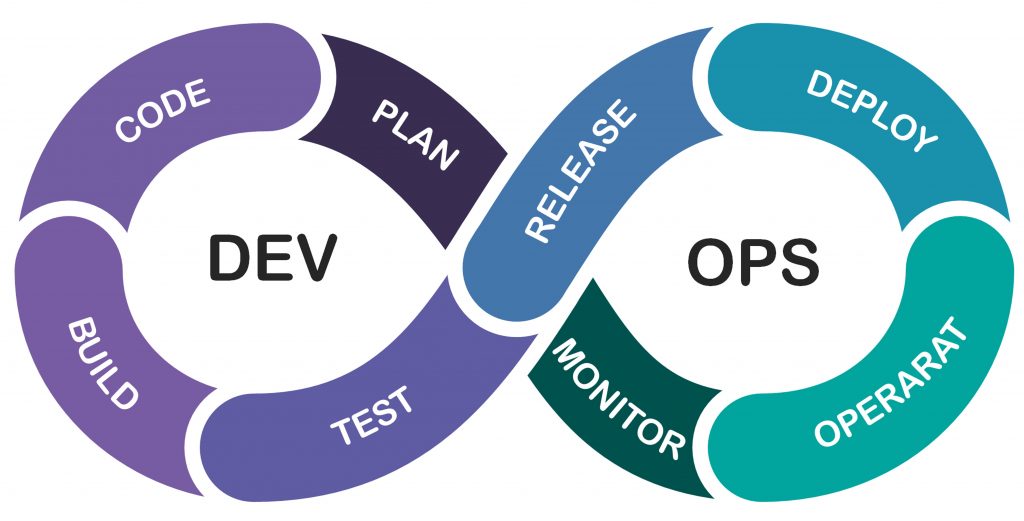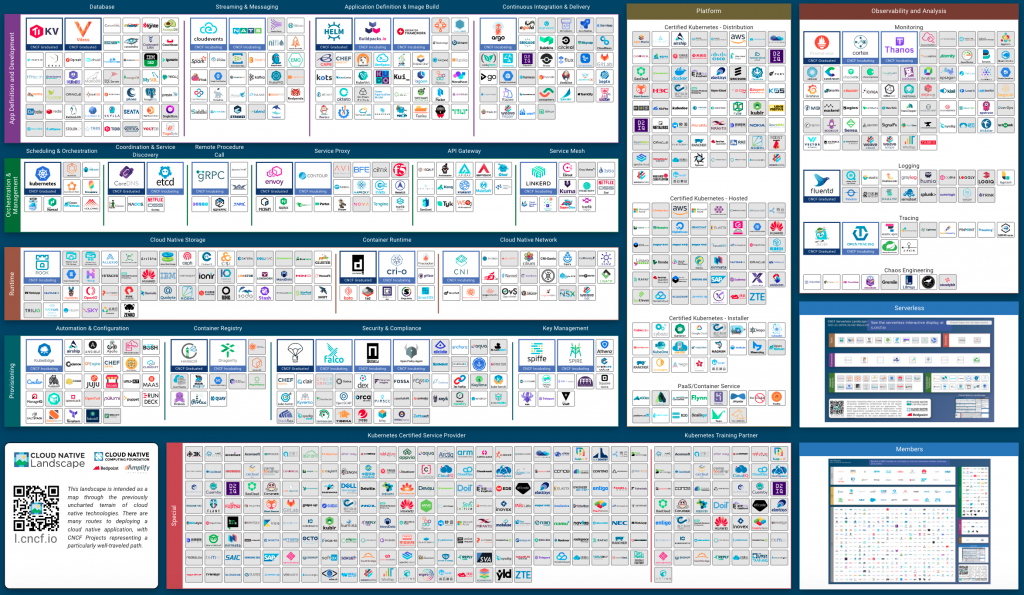Companies worldwide invest time, money, and energy into implementing DevOps to accelerate their digitalisation. But do you know what this buzzword means behind the scenes? We’re here to help you get a complete picture.

The growing number of DevOps job ads is clear proof that this method is making a name for itself. It’s a new approach, a philosophy, so to say, that is meant to improve work throughout the development lifecycle.
Let’s dive into the world of DevOps together and see what the buzz is all about.
Table of Contents
What is DevOps?
Many define DevOps as an approach or set of principles. The word comes from development and operations, suggesting the merge or a link between the two.
Check out this illustration of the DevOps cycle:

It’s a new, end-to-end, agile and lean approach to software development. So first and foremost:
1. It's a new approach
These are the critical attributes of DevOps:
- End-to-end because it covers the whole value chain and lifecycle of the software from business need-based coding through build, testing, deployment and full-scale maintenance.
- Agile because it is a business value-focused, implemented in iterative cycles and based on collaboration.
- Lean because you can eliminate double work, wait time and unnecessary bugs. It helps cut costs through process improvement in the long run.
2. It's company culture
DevOps can break down walls between business and IT if we look at the software development cycle as a single unit.
Instead of isolating sections of the process, it thinks in an approach based on cooperation, business goals and values. It prioritises collaboration, responsibility and ownership, direct and constructive communication, continuous learning and trying new things.
Since the approach is still relatively new, it expects senior professionals to leave their comfort zone, step out of the usual silos and change their way of working.
DevOps might be an opportunity for self-expression for some and a challenge to take on for others.
3. It's business KPIs and new expectations
Part of the DevOps approach and way of working are shared goals.
Beyond your typical objectives, like fast code delivery by developers and quick error handling by Ops, business objectives are prioritised in all DevOps roles: business value delivering software should be up and running fast, and it should continue to work without a problem 24/7.
4. It's a wide variety of tasks
Because of the approach’s complexity and relative newness, you will find many different implementations of DevOps in workplaces.
It was first used by companies that originated on the internet, like Flickr, Etsy and Netflix. Their teams had to deliver fairly complex developments quickly in a relatively simple architecture. Since then, classic corporations have also taken on the approach, with architectures built up of a complex network of different technologies linking to a set of decades-old legacy systems.
The Netflix model is called NoOps: the development team is doing all maintenance jobs, too. (So there is actually “Ops” in “NoOps”, too, just not in a separate unit.) On the other hand, several corporations started to set up additional DevOps teams, which help the work of the classic teams as a kind of Centres of Excellence, coordinating and delivering DevOps tasks.
Outsourcing, like cloud solutions (like IaaS, Paas, and SaaS), also significantly affects the scope of DevOps jobs to be delivered in a team.
DevOps tasks and processes typically include work-item management, config management, version control, monitoring and automation.

5. It's a fast-growing landscape of tools
The good news is that DevOps is supported by better-and-better tools and technologies now coming up almost every week. And this is the bad news, too. If having to learn something new every day is something you feel uneasy about, then DevOps might not be for you.
Before we scare you away with the picture painted above, relax: nobody wants you to learn everything. We usually look at what companies are using or plan to use, and we focus on those things only.
We think it is worth getting up to speed with the below technologies, platforms and tools first:
You will have plenty of time to learn any other tools on the job later.
6. It's a bunch of soft skills
To go into DevOps as a software developer, you must work on your basic scripting, OS, network, cloud and CI/CD skills.
Besides hard skills like mastering digital tools and techniques, soft skills will surely be in focus during interviews.
You are generally expected to be open to learning new things, think as a developer, maintenance professional, your business customer and end-user, be independent and proactive, and be a good enough diplomat for smooth and close cooperation with other teams.
7. DevOps is.. your next job?
You have the chance to learn DevOps at our Full-Stack Development course.
You can get the basic skills during hands-on training, and get up-to-speed with the latest technologies.
After finishing this course you will have all the skills and knowledge to apply to any junior DevOps Engineer job, anywhere in the world.
Sounds good?
Reach out! You can write a mail or start a convo via our chatbot. We’re happy to hear from you and answer all your questions!